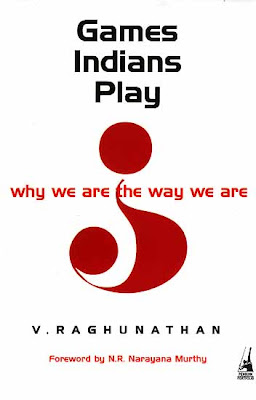Managers in IT Industry : What do they really 'Manage'?
 Long time back I forwarded this picture to group of my friends group and it tickled an interesting discussion among us. If you see the picture there are lot of 'managers' are surrounding an engineer or a worker managers are simply watching and the engineer (people like me) are doing the hard work. This throws up an interesting question 'What do these managers really manage?'
Long time back I forwarded this picture to group of my friends group and it tickled an interesting discussion among us. If you see the picture there are lot of 'managers' are surrounding an engineer or a worker managers are simply watching and the engineer (people like me) are doing the hard work. This throws up an interesting question 'What do these managers really manage?'According to my experience there are two types of manager roles that are existing in the hi-tech industry as of now:
1. Delivery managers: These managers are basically a techie and moved to management ladder because of experience in software engineering and responsible for software engineering deliverables guy mainly operates within the 'software life cycle' starting from requirements gathering,design,coding,testing,release.
2. Business managers: Basically come from MBA background and manages any one of the non-engineering areas like HR,Finance/Biz development,Strategy of the company. As far as IT industry in India is concerned there is more need for #1 than #2 because in India we do more of 'Engineering' nature of the work (Coding/Testing/Support). This is also because of the first generation 'services' companies (Infy, Wipro, etc..) whose business model requires more delivery managers than business managers. In the recent past I spoke to some of my friends who have done their MBA and they say they would preferably will choose option#2. They get into the consultant role and grow in the business ladder if we look in a global viewpoint, take companies in US/UK where they do product definition, market research, partner management, sales etc. requires more of MBA managers. In India we cannnot do such things at this point of time because we don't have a huge domestic market.
Now given the situation in India, what does it really takes it to 'manage' and become a successful delivery manager? After talking to many people I could come to three major factors:
1. Strong interest and inclination towards technology: Most of the delivery managers in India fail in this point itself as they stop reading or learning about the technology trends and happenings in the market as soon as they become managers. This also makes them 'ignorant' of what an engineer reporting to him does. This is why there I am able to see much of 'Anti-manager' feelings among the engineering community.
2. Business Acumen: In delivery management this factor is also very important and need to understand the 'Big-picture'.This makes the delivery managers to think about the business angle of the product or service that the company is offering.If any delivery manager is good in this he shoud be able to answer to the question 'What is your customer's customer want?'
3. People Management: Last but not the least. This is *THE* important factor. I have seen managers who are not good in technical and business stuff but they do wonders because they are good in managing people. They know the art of 'getting things done'.
Finally coming to the picture above, it depicts when any manager fails to have any of the three factors that I have mentioned. They simply know 'Something is happening' but fail to make any impact to the company or the people. They become more of what I call as 'Operational' managers (Naam-ke-wasthe doing some PPTs, tracking excel sheets, giving FUTTAs) which is *NOT* management at all.

Comments
my 2 cents here.. you have only taken the examples of services industry rut in which there r lot of redundant nodes all the way to root.. however, there is one more of breed of managers who work for 21st centuries companies like google, amazon n other start-ups.. They do hold business positions but they r still hard core technocrats n programmers..